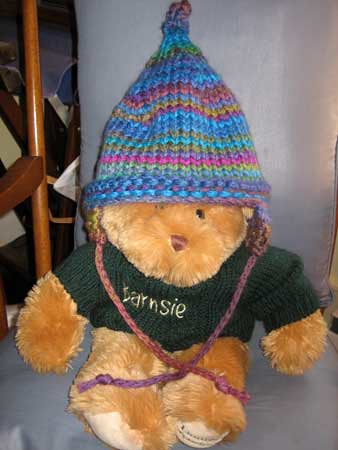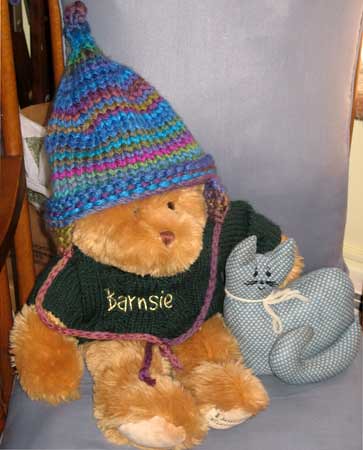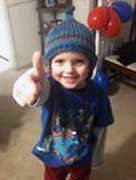Before I regale you with the books I read in January and why I did/did not like them, I want to say a truly heartfelt "thank you" to everyone who commented on my previous post that introduced everyone to Cream Puff. Your comments were not only nice, and some very touching, but it was nice to know that some of you have wonderful special friends of your own. I shared the comments with Creamy, and he was quite pleased. :-)
I read an interesting group of different types of books during the past month. Often my reading goes in spurts - lots of biography, or mystery, etc. But last month, the things I read were similar only in the fact that they were all in print ...
See what you think!
Salvation: Scenes from the Life of St. Francis, by Valerie Martin. This is a book I read once before, when I received it as a Christmas gift in 2001. I was trying to decide what to read next a few weeks ago, and saw it on the shelf, and decided to read it again. I'm glad that I did.
I have been a fan of St. Francis of Assisi since I was a little girl, particularly since he is the patron saint of animals, and I love animals. Of course I read and heard the various stories about him, and as I got older I realized that like anyone else, there were more layers to him than the schoolroom stories.
This book tells his story in a series of vignettes, as opposed to being a narrative biography. Francis is a multilayered person, devoted to God and dedicated to helping others and leading them to heavenly salvation. He preaches simplicity, kindness, and patience with oneself and others around them. Valerie Martin takes someone who - in modern day - could be thought of as some kind of religious fanatic whacko, and instead shows us an individual who decides to live his life in a way that is opposite to the lifestyle he lived as a child, and becomes truly happy with his choice.
The book is not religious per se, but a knowledge of medieval history can help the reader place things into context. I liked the fact that I could put it down and pick it back up without having to remember the "plot" - an advantage to this type of storytelling. The St. Francis of this book is not the one I "knew" in my childhood, but rather a more adult version who is still interesting. One thing that hasn't changed is my wonderment/puzzlement at the lives of the early saints, lives that are not just alien to me in their locales, but in their devotion to God. I like to think of myself as a spiritual person, but I am also lazy and one who enjoys creature comforts. I don't think I'm saint material!
**A Box of Darkness: The Story of a Marriage, by Sally Ryder Brady. I received this book from the Goodreads Advance Readers Program. The blurb posted on the site made it sound like it would be interesting, and even though I received it a month or so ago, I just got around to reading it now. In short, it is a good read - I started it and finished it in one day.
This true story tells of Upton and Sally Brady, who met when she was introduced at a debutante ball, had lives that intersected at points in the next few years, and who married in 1956. When the book opens, Sally and their adult children are traveling to scatter Upton's ashes in the ocean, near the space where they spent many summers. The story goes back in time and then back to the present, which is more effective in some places than in others. Sally's discovery that Upton was a closet homosexual throws her into a year of not just mourning his death, but wondering if he truly loved her, or if their life together was meaningful at all.
I liked this book overall. Sally seemed to be able to give her late husband the benefit of the doubt, and clearly wanted to present the truth but still portray Upton as a person whose problems were a result of the time and social mores, rather than just due to personal flaws. I think it is well-written, and I'm sure it must have been difficult to write, being a true story. Sally and Upton lived their lives in a privileged circle, though they were not wealthy themselves, and one of the problems I had with the story is that Sally seemed content throughout most of the book to accept things like Upton controlling funds because since he was the one who worked outside the home, therefore it was *his* money. It's clear that she loved him, but was willing to overlook a lot - his drinking, his verbal abuse, his control over the family's life.
All of this is, of course, easy for me to say as an outsider. But I kept wishing as I was reading the book that she would just once stand up for herself instead of going to all the trouble to just keep peace. Upton struck me as a major pain in the ass, a bully used to getting his own way, and then expecting to be forgiven when he deigned to apologize (which apparently wasn't often).
So ... did I like this book? Yes. Is it well-written? Not as much as I would have liked, but it's certainly readable. The blurbs on the back of the book compare it to Joan Didion's "Year of Magical Thinking" and I think it falls well short of that comparison. But as a true story of one couple's marriage and life together, it demonstrates that marriage is a delicate balance between two people, and there are parts that those on the outside may never understand completely.
Raven Black, by Ann Cleeves. This is the first in a new series (well - new to me) by this author, and I thought it was a strong start.
The story takes place in the Shetland Islands, and starts on New Year's Eve. The first person we meet is Magnus Tait, who is clearly a person with some type of mental disability, and is an outcast in the small town because of something that happened long ago. He is waiting for a New Year's Eve visitor, even though no one has stopped in for years. His only company is a caged raven, whose wing was broken, and who Magnus has cared for. As it happens, two young girls from the town stop in to see him, which we later learn was done as part of a dare. They are slightly drunk, having come from another party. He invites them in, excited to have some company.
The next day when a woman named Fran Hunter walks by Tait's house, she notices a group of ravens gathered around something that is bright red. It turns out to be the body of one of the young women, who appears to have been strangled with her red scarf. Everyone immediately assumes that Magnus Tait has murdered her.
Enter Jimmy Perez, the local homicide detective assigned to the case. For reasons he can't quite verbalize, he things Magnus Tait is innocent. When outside detectives are called in to help solve the case and provide reinforcements, Perez finds an ally who lets him try to prove Tait's innocence.
This was a really interesting story, set in a location that I found really interesting. The depiction of the place, as well as a group of very diverse characters, made it feel like you knew who everyone was, and where they lived and worked. I think that Ann Cleeves took what could have been a completely formulaic murder mystery and provided a lot of extra details that would draw the reader in, knowing that her characters were like people everyone knows in one way or another.
I am usually pretty lousy at figuring out the villain in murder mysteries, but in this story, I was pretty sure that I'd discovered the murderer about halfway through. Only to learn at the end that the murdered was someone I'd never even considered!
A good read, made even more interesting to me, since I have always wanted to visit the Shetland Islands. I would recommend this book to anyone who likes mysteries that make you think about more than the story.
**You Know When the Men Are Gone, by Siobhan Fallon. I feel the need for a disclaimer before I start writing about this book. I have never, ever wanted to be in the military, or live on a military base. I know plenty of people (my sister-in-law for example) who are married to military men, and who do not seem to mind at all. So it's not that I think it doesn't happen, just that I'm not cut out for it.
Having said that, when my husband brought home an Advanced Readers' Copy of this book, I was excited to read it, having read favorable reviews. Siobhan Fallon has lived on a military base while her husband was deployed abroad, and in these eight stories, she writes about military families stationed at Fort Hood, Texas. The stories are from the viewpoints of wives of soldiers deployed to Iraq, as well as from the soldiers' points of view both at home and while stationed in Iraq. They are well-written and heartfelt, and each one pulls you in before you even realize it. They are, for the most part, sad, and also frustrating if you are like me and feel that our reasons for going to war in Iraq were tenuous even on a good day.
The characters feel like they are real people, and I'm sure this is because Fallon has experienced the feelings, sadness, and frustrations of living your life with someone who is in the armed services during a time of war. It would surprise me to learn that the stories and the people in them were not based on acquaintances or personal experiences, or are not am amalgam of several types.
I do have to say that as well-written and compelling as each story is, that this is one of the most depressing books I have ever read. I'm sure that some of it is my own personal bias, but just as much of it is the fact of knowing that real, actual people live their lives and have these feelings every single day. Some of the things I read about what happens on a military base when you live there made me want to scream. But mostly it was depressing to think that every single day, someone who is the most important person on earth to at least one other person dies for what I think is no good reason.
I sincerely recommend this book, but I can't say that I loved reading it. I'm glad I read it, though, so that I was reminded of the fact that war is never victorious for any side when you think of the human lives extinguished as a result.
If you think you are interested in reading either of the books with asterisks before their titles, I am giving them away. Just leave a comment to let me know which one you would prefer. As usual, if more than one person is interested, I'll choose a "winner" at random. Let's say that the deadline is the end of the day, this coming Friday, February 4.






